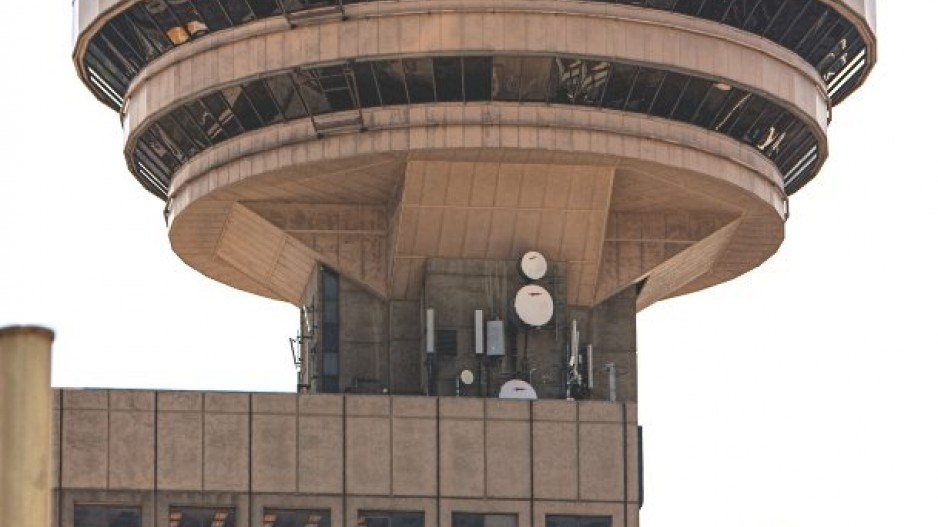If the near future promises driverless cars, augmented reality and flying drones, Canadians will need wireless speeds capable of transferring immense amounts of data faster than present LTE networks.
In Ontario and Quebec, provincial governments are collaborating with Ottawa and private-sector partners to develop a $400 million “5G corridor” to support the needed speed upgrades.
But B.C., home to telecom giant Telus Corp. (TSX:T), is taking a different path.
“We did this two years ago; they’re trying to replicate it in Ontario and Quebec now,” said Telus chief technology officer Ibrahim Gedeon, referring to the launch of a “5G Living Lab” in downtown Vancouver in fall 2015.
What’s at stake in the Telus partnership with Huawei Technologies Co. Ltd. is the push to ensure that Telus and Canada don’t fall behind in the global race to harness 5G network speeds.
The Living Lab has seen Telus and the Chinese smartphone maker collaborate on experiments such as speed tests on 4K televisions and holograms, both of which require an exceptional amount of bandwidth.
But Scott Bradley, vice-president of corporate affairs at Huawei’s Canadian office, said the partnership isn’t necessarily a mirror of what’s taking place throughout the rest of the world.
“You’re starting to see companies now come off the hype of 5G,” he told the audience at last month’s B.C. Broadband Conference.
Bradley said European companies were initially leaders on 5G research.
“[But] they missed the boat on LTE and in order for Europe to address some of the economic challenges they still have was to embrace 5G as a way to move their economy forward digitally. Where Europe has struggled has been in the application space.”
Bradley said four applications for 5G-enabled technologies have the most potential: autonomous vehicles, drones, augmented reality and virtual reality, and the natural resources sector. The latter application could have the most notable impact on Canada’s economy as industrial mobile robotics and real-time sensor networks become more ingrained in mining, energy and forestry.
And because Canadian telecom companies are investing in 5G and are better capitalized than the larger operators in Europe, there’s an opportunity for the country to lead.
“What you’ve seen from Telus has been early vision of where investing in 5G and partnering in 5G and starting to do these trials over the past few years have positioned them quite well,” Bradley told Business in Vancouver following his address.
Gedeon said that vision includes early investments in building out fibre networks that 5G would rely on to achieve rapid speeds.
“In 2008, Bell [TSX:BCE] was laughing at us when we were trenching fibre in Montreal,” he said. “But now … that’s paid off in spades.”
However, Gedeon cautioned that the telecom industry must get its “act together with the government to start making available the spectrum frequencies.”
For example, he said the industry needs access to 3.5 gigahertz spectrum, which could be a global standard for 5G, according to a 2017 ABI Research report.
“We might lose a bit of the global lead we have as Canada, which is unfortunate.”
But Gedeon added that Telus could still catch up to the rest of the world by the end of 2019, when commercial deployment of 5G is expected to begin in earnest.
Meanwhile, Huawei has come under recent fire from security experts in North America over its strong ties to Beijing.
American intelligence officials told members of the U.S. Senate in February that they would advise consumers against buying the devices due to spying concerns.
Last month, the Pentagon banned the sale of both Huawei and China’s ZTE Corp. phones from retail stores on military bases.
While not referring specifically to Huawei, U.S. Federal Communications Commission chairman Ajit Pai issued a warning in March about national security threats posed by “certain communications equipment providers.”
“Hidden ‘back doors’ to our networks in routers, switches – and virtually any other type of telecommunications equipment – can provide an avenue for hostile governments to inject viruses, launch denial-of-service attacks, steal data, and more,” he said in a statement.
But Public Safety Minister Ralph Goodale told Parliament that same month that his government did not believe Huawei posed a risk to Canadians’ security.
“Huawei’s been here for 10 years,” Bradley told BIV. “There’s never been an issue. We were open and transparent with the Canadian government. We were open and transparent with our operators. … You can clearly look at the benefit of the approach that Canada has taken with respect to 5G, with respect to competition. We operate within that framework.”




